- Experts
- Election 2024
-
Topics
FeaturedIntroduction Over the last several decades, governments have collectively pledged to slow global warming. But despite intensified diplomacy, the world is already facing the consequences of climate…
-
Regions
FeaturedIntroduction Throughout its decades of independence, Myanmar has struggled with military rule, civil war, poor governance, and widespread poverty. A military coup in February 2021 dashed hopes for…
Backgrounder by Lindsay Maizland January 31, 2022
-
Explainers
FeaturedDuring the 2020 presidential campaign, Joe Biden promised that his administration would make a “historic effort” to reduce long-running racial inequities in health. Tobacco use—the leading cause of p…
Interactive by Olivia Angelino, Thomas J. Bollyky, Elle Ruggiero and Isabella Turilli February 1, 2023 Global Health Program
-
Research & Analysis
FeaturedThe rapidly changing landscape of foreign influence demands a new approach, argues Senior Fellow for Global Governance Miles Kahler. Countering malign influence from abroad will require a stronger democracy at home.
Council Special Report by Miles Kahler October 23, 2024 Diamonstein-Spielvogel Project on the Future of Democracy
-
Communities
Featured
Webinar with Carolyn Kissane and Irina A. Faskianos April 12, 2023
-
Events
FeaturedThis symposium was created to address the broad spectrum of issues affecting Wall Street and international economics. It was established through the generous support of Council board member Stephen C…
Virtual Event with Emily J. Blanchard, Matthew P. Goodman, David R. Malpass, Elizabeth Rosenberg, Janet Yellen, Michael Froman and Rebecca Patterson October 17, 2024 Greenberg Center for Geoeconomic Studies
- Related Sites
- More

Related Content
- Africa and the First U.S. Presidential DebateMainstream U.S. media is characterizing the September 29 debate between President Donald Trump and former Vice President Joe Biden as a disaster. The moderator was never able to establish control. President Trump, especially, constantly interrupted former Vice President Biden. Rather than a discussion about policy and ideas, the debate was a rant or a temper tantrum. In Africa, the debate will hardly burnish the image of democracy or the United States. However, the October 2 news that President Trump and the First Lady have tested positive for the coronavirus is likely to overshadow the debate in Africa as elsewhere. This debate was focused on U.S. domestic issues. Therefore, there is no surprise that there was – literally – no reference to Africa. A subsequent debate would address U.S. foreign policy, and it is devoutly to be hoped that the candidates would at least acknowledge the continent's growing importance. However, with the President's diagnosis, it is by no means certain that there will be any more presidential debates. The debate between Vice President Pence and challenger Kamala Harris is almost certain to go ahead next week, but its focus is likely to be purely domestic. Though it varies from country to country, probably most Africans have access to the internet. (In any given month at least 80 percent of Nigerians, who number some 205 million, access the internet.) Africans, like others around the world, follow U.S. presidential elections closely. It must be anticipated that many, perhaps most, of Africa's leadership watched the presidential debate, along with a large number of other Africans. Over the next day or two, the news of the President's diagnosis will be universally known in Africa. Many Africans acknowledge that in their country democracy is weak, government is unresponsive, and too often has been captured by self-serving elites. (With more than fifty states in Africa, there are, of course, exceptions to poor governance: Botswana, Namibia, Senegal, and South Africa immediately come to mind; there are others.) For much of the period since 1960 when most African states became independent, the United States has been a beacon of hope for democrats. But, the American image has been eroding, not least because of American police violence, the response to "Black Lives Matter" demonstrations, white supremacist rhetoric, and in some places new American immigration policies. The poor U.S. response to COVID-19 in comparison with other countries has also undermined the American brand. For Africans, the President's diagnosis is likely to highlight the shortcomings of the American response to the virus.
- Election 2020 U.S. Foreign Policy ForumA discussion of the foreign policy challenges awaiting the winner of the 2020 election and the critical issues for Americans to consider as they cast their vote.
- Campaign Foreign Policy Roundup: What to Do About Iran?Each Friday, I look at what the presidential contenders are saying about foreign policy. This week: how Donald Trump and Joe Biden say the United States should deal with Iran.
- Cyber Week in Review: September 25, 2020EU tech companies sold surveillance technology to China; Facebook removes accounts linked to China and the Filipino military; China threatens to sanction U.S. companies, considers releasing a blacklist; DOJ seeks to reduce internet companies’ immunity; and TikTok deal gets messy, ByteDance seeks to block Trump administration’s ban.
- TWNW Special: How Americans See the WorldOn this special episode of The World Next Week, James M. Lindsay and Robert McMahon are joined by Ivo H. Daalder, president of the Chicago Council on Global Affairs, and Dina Smeltz, senior fellow for public opinion and foreign policy, to discuss the Chicago Council’s annual survey of American attitudes toward foreign policy. This year’s survey, which can be found on the Chicago Council’s website, is entitled “Divided We Stand.”
 Online Store
Online Store
